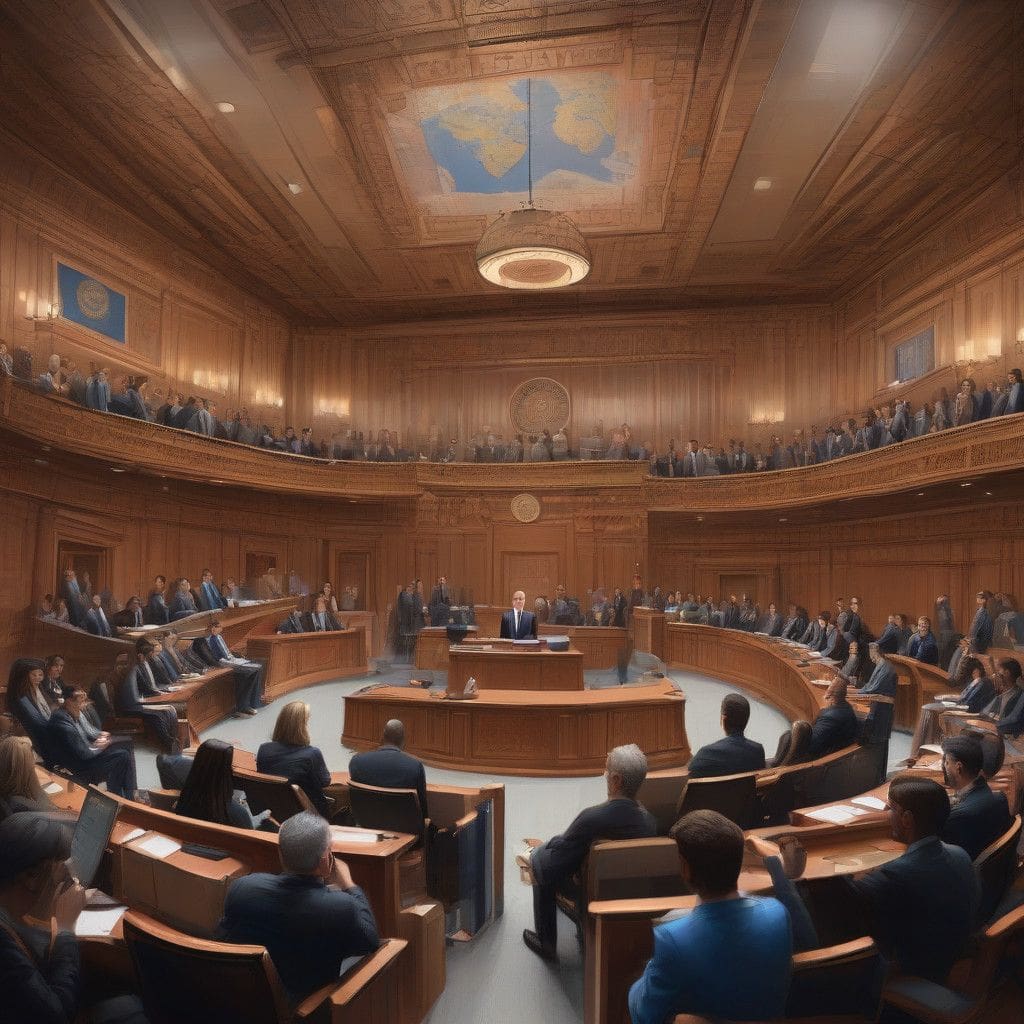As debates around net neutrality continue, the spotlight has turned to a pivotal legal challenge involving the Federal Communications Commission (FCC). A recent session at the 6th Circuit Court of Appeals has highlighted uncertainties regarding the FCC’s authority to enforce net neutrality regulations. This discussion arises in a context where internet access and service quality significantly influence both businesses and consumers across the United States.
The implications of net neutrality are profound. At its core, net neutrality ensures that internet service providers (ISPs) treat all data on the internet the same, prohibiting them from blocking or slowing access to websites. This principle is critical as it fosters an equal playing field for startups and established tech giants alike. However, the landscape shifted dramatically with the FCC’s changes in regulatory stance over the years.
Originally implemented during the Obama administration, net neutrality regulations were repealed under President Trump. This shift sparked significant debate over the control and regulation of internet services, a domain that directly impacts millions of users and multiple sectors, from tech companies to education services. Under the Biden administration, an attempt to reinstate these rules has rekindled legal battles, as evidenced by the latest court proceedings.
During the recent hearings, a three-judge panel listened attentively to arguments from both sides. The telecommunications industry, represented by attorney Jeff Wall, contended that the FCC had overstepped its authority. They invoked the ‘major questions’ doctrine, asserting that significant regulatory changes require explicit congressional approval. In essence, the argument suggests that decisions affecting such an essential service should reside more squarely within the legislative realm rather than being dictated by an independent agency like the FCC.
The judges expressed concern about the frequency of FCC regulatory shifts, questioning whether such volatility undermines the agency’s credibility. Judge Griffin raised an important point about the consistency of the FCC’s position over time. This inconsistency could weaken the agency’s argument for its current authority. Judge Kethledge encouraged a grounded approach focusing on the specific statutory language rather than broader, ambiguous doctrines.
Major tech firms have supported the reinstatement of net neutrality, recognizing the need for open internet policies to sustain innovation and fair competition. Companies like Amazon, Apple, and Google argue that an unregulated internet ecosystem fuels creativity and technological advancement. In contrast, large telecom firms fear that strict regulations could hinder their ability to invest in infrastructure and innovation. This divide illustrates a classic conflict within the business landscape: the balance between regulation and free-market principles.
The stakes are extraordinarily high in this ongoing legal battle. If the court sides with the FCC, it could lead to a revival of net neutrality principles, forcing ISPs to adhere to stricter guidelines about how they manage internet traffic. Conversely, a ruling against the FCC would bolster telecom companies, allowing them greater flexibility in how they operate, potentially allowing practices that favor larger companies or create tiered services based on payment.
Moreover, the discussions in the courtroom reflect a broader concern about consumer rights in the digital age. With more than 90% of Americans relying on the internet for daily tasks, equitable access to information becomes a matter of fundamental fairness. Without net neutrality, internet users may face higher prices for high-speed internet access, limiting opportunities particularly for small businesses and entrepreneurial startups that rely heavily on online platforms for their survival and growth.
As the case unfolds, the final ruling will likely set a crucial precedent impacting the regulatory environment surrounding internet services in the United States. For businesses, particularly within tech, e-commerce, and education, observing the court’s decisions will be vital for strategic planning in an increasingly digital marketplace.
With the decision yet to come, stakeholders across various sectors await a ruling that could redefine the future of net neutrality and internet regulation in the U.S. The court’s choice will either restore the foundational principles of net neutrality or pave the way for a more fragmented and potentially unequal internet landscape.












